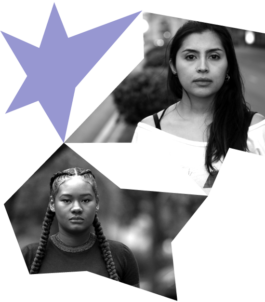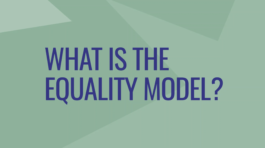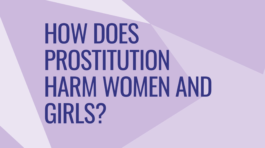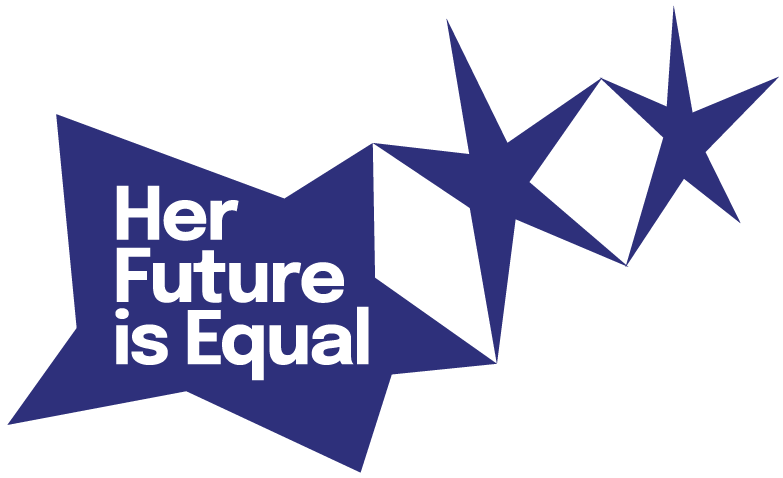The realities of prostitution in Europe
The vast majority of people in prostitution would prefer not to do it. 9 out of 10 women in prostitution have said that they would leave it if they could. (Farley 2003).
Many people in prostitution are there because they have been trafficked or sold against their will. 65% of trafficking in the EU is sexual exploitation and 95% of those exploited are women. (European Commission 2018). This means that while not everyone working in the sex trade has been trafficked, almost all trafficked women are in the sex trade.
Sexual exploitation disproportionately affects women and girls and prevents true equality. In Europe, 90% of prostituted people are women and girls (Europarl 2014), and 97% of sex buyers are men. (stoptraffick.ie). 75% of these prostituted girls and women are between 13-25 years old (Europarl 2014)
Many others are there because they have no other opportunities in life. Globalisation and the movement of people from less economically developed regions also means that most individuals in prostitution are from migrant or ethnic minority backgrounds. Migrant women make up an average of 84% of prostituted women in the EU (O’Connor 2018)
Knowing this, we can’t accept that it’s ok. The Equality Model helps women and girls, particularly migrant women and those experiencing disadvantage to access more options in life through welfare, training, education and other supports. This means that prostitution is not their only choice to make money.


The Equality Model
The Equality Model is a proven, integrated solution to prostitution that puts fairness first. The Equality Model was approved as the best model to address prostitution by the European Parliament in 2014 and by The Council of Europe in 2014. The Equality Model supports all people's choices except for those who want to buy and sell sexual access to other people.
The Equality Model has been proven to reduce the size of the sex trade (SOU 2010). In contrast, compared to Sweden which pioneered the Equality Model, adjusted for population the legal regime in the Netherlands has 9 times the amount of people in prostitution, while the legal regime in Germany has 30-40 times the amount of people in prostitution (Walby 2016).
Trafficking has also been shown to increase in regions where prostitution is legal (Cho 2013).
The Equality Model does not increase violence against individuals in prostitution (SOU 2010)
Limiting the size and influence of the sex trade reduces the violence and harm of prostitution. The Equality Model tackles the root causes of inequality between men and women, for migrants, LGBT+ individuals and those experiencing disadvantage. With the Equality Model, everyone has a human right not to be bought or sold for sex.
What is the Equality Model?
Decriminalise individuals in prostitution
Criminalise the buying and selling of other people for sex
Supports to for people to avoid and exit prostitution (welfare, housing, healthcare, counseling and other support services)
Why the Equality Model?
It supports freedom of the individual - Respects and decriminalises individuals in prostitution
It supports freedom to change - Enables people who choose to leave prostitution
It supports freedom of choice - Supports people who don’t want to enter prostitution
It enables freedom from slavery - Empowers victims of trafficking and coercion to escape
It enables freedom from exploitation - End culture of commodification and objectification of women’s bodies
It supports full and free consent - Support an individual’s continuous control and power to refuse sex
“I′ve never, ever seen prostitution in any woman's life that didn't begin before the beginning”*
“So the man came and the man took me and I tell the man I was scared this time and he said he was not going to hurt me that he is only doing what he's paying for”*
“Every client you do you devalue, devalue, devalue so by next week you're less, you're worth less money wise than you were last week until one day you're not worth anything at all...you imprison yourself into a world without even realising it.”

*Survivor quotes attributed to women in prostitution in Choice, agency consent and coercion: Complex issues in the lives of prostituted and trafficked women, Monica O'Connor (Equality Studies Centre, University College Dublin), Women's Studies International Forum, Volume 62, May–June 2017, Pages 8-16)

The realities of prostitution in Europe
The vast majority of people in prostitution would prefer not to do it. 9 out of 10 women in prostitution have said that they would leave it if they could. (Farley 2003).
Many people in prostitution are there because they have been trafficked or sold against their will. 65% of trafficking in the EU is sexual exploitation and 95% of those exploited are women. (European Commission 2018). This means that while not everyone working in the sex trade has been trafficked, almost all trafficked women are in the sex trade.
Sexual exploitation disproportionately affects women and girls and prevents true equality. In Europe, 90% of prostituted people are women and girls (Europarl 2014), and 97% of sex buyers are men. (stoptraffick.ie). 75% of these prostituted girls and women are between 13-25 years old (Europarl 2014)
Many others are there because they have no other opportunities in life. Globalisation and the movement of people from less economically developed regions also means that most individuals in prostitution are from migrant or ethnic minority backgrounds. Migrant women make up an average of 84% of prostituted women in the EU (O’Connor 2018)
Knowing this, we can’t accept that it’s ok. The Equality Model helps women and girls, particularly migrant women and those experiencing disadvantage to access more options in life through welfare, training, education and other supports. This means that prostitution is not their only choice to make money.

The Equality Model
The Equality Model is a proven, integrated solution to prostitution that puts fairness first. The Equality Model was approved as the best model to address prostitution by the European Parliament in 2014 and by The Council of Europe in 2014. The Equality Model supports all people's choices except for those who want to buy and sell sexual access to other people.
The Equality Model has been proven to reduce the size of the sex trade (SOU 2010). In contrast, compared to Sweden which pioneered the Equality Model, adjusted for population the legal regime in the Netherlands has 9 times the amount of people in prostitution, while the legal regime in Germany has 30-40 times the amount of people in prostitution (Walby 2016).
Trafficking has also been shown to increase in regions where prostitution is legal (Cho 2013).
The Equality Model does not increase violence against individuals in prostitution (SOU 2010)
Limiting the size and influence of the sex trade reduces the violence and harm of prostitution. The Equality Model tackles the root causes of inequality between men and women, for migrants, LGBT+ individuals and those experiencing disadvantage. With the Equality Model, everyone has a human right not to be bought or sold for sex.
What is the Equality Model?
Decriminalise individuals in prostitution
Criminalise the buying and selling of other people for sex
Supports to for people to avoid and exit prostitution (welfare, housing, healthcare, counseling and other support services)
Why the Equality Model?
It supports freedom of the individual - Respects and decriminalises individuals in prostitution
It supports freedom to change - Enables people who choose to leave prostitution
It supports freedom of choice - Supports people who don’t want to enter prostitution
It enables freedom from slavery - Empowers victims of trafficking and coercion to escape
It enables freedom from exploitation - End culture of commodification and objectification of women’s bodies
It supports full and free consent - Support an individual’s continuous control and power to refuse sex
“I′ve never, ever seen prostitution in any woman's life that didn't begin before the beginning”*
“So the man came and the man took me and I tell the man I was scared this time and he said he was not going to hurt me that he is only doing what he's paying for”*
“Every client you do you devalue, devalue, devalue so by next week you're less, you're worth less money wise than you were last week until one day you're not worth anything at all...you imprison yourself into a world without even realising it.”

*Survivor quotes attributed to women in prostitution in Choice, agency consent and coercion: Complex issues in the lives of prostituted and trafficked women, Monica O'Connor (Equality Studies Centre, University College Dublin), Women's Studies International Forum, Volume 62, May–June 2017, Pages 8-16)



